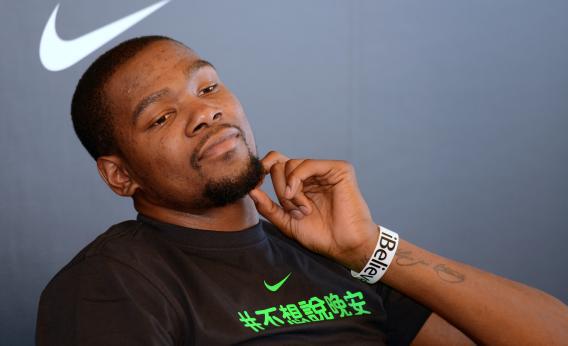I enjoyed Zach Lowe’s long look at the Oklahoma City Thunder, the tight financial position they’re in, and the deep legacy of the James Harden trade. But this bit of financial analysis is missing an important piece of context:
But a third max salary for Harden, atop Serge Ibaka’s big new deal, would have been too much to swallow regardless. This is why the Thunder tried, in the high-pressure hours before the Harden deal, to re-sign Harden to something like a four-year, $52 million contract — a deal below the max, and one that would have paid Harden $11.5 million in Year 1 and $12.5 million in Year 2. People laughed at the small difference between that kind of contract and the four-year, $60 million deal Harden actually wanted, but the difference absolutely mattered. Every dollar matters for Oklahoma City.
This is a team that makes about $15 million from its local television deal; the Lakers make $250 million per year from theirs. The Thunder just lowballed Roberson in order to make sure they duck the tax this season and delay the repeater clock one more time. Oklahoma City paid into the league’s revenue-sharing system last season instead of getting a boost from it, according to several sources with knowledge of the plan.
You might want to ask yourself at this point how is it that the Thunder ended up playing in such a small and relatively poor place like Oklahoma City? Wouldn’t it make more sense for an NBA team to be in a place like, say, Seattle that has a much larger and more prosperous population? Well it turns out that there was an NBA team in Seattle and a consortium of rich Oklahomans led by Clayton Bennett purchased it. Since these guys lived in Oklahoma, they wanted to move the team to Oklahoma where they live. Which is nice for them, except Oklahoma turns out to not have any large media markets.
Them’s the breaks, I guess. The fact that the Lakers (rather than, say, the Knicks) have the richest local TV contract in the league is a reminder that there’s more to the business of basketball than being located in a large city. But a successful basketball team located in Seattle (3.5 million people in the MSA) is going to be more lucrative than a team located in Oklahoma City (1.3 million people in the MSA), which makes it more financially worthwhile to invest in things like a long-term contract for James Harden.
Now obviously if you’ve been hired by Bennett to manage his basketball team you need to operate within the constraints he gives you. But if you’re Kevin Durant you ought to recognize that your employer not only gave a way a great shot at a championship in order to pinch pennies, he was forced into penny-penching out of a very idiosyncratic desire to relocate his business to an obviously less viable market. It’s the kind of thing that could lead a young star to think that rather than signing up for another tour of duty in an inherently compromised situation that come free agency he should look to shift to his hometown Washington Wizards. There hasn’t been any winning basketball in the DC area for quite some time, but it’s a large and prosperous where ownership has every reason to pay what it takes to win games.
